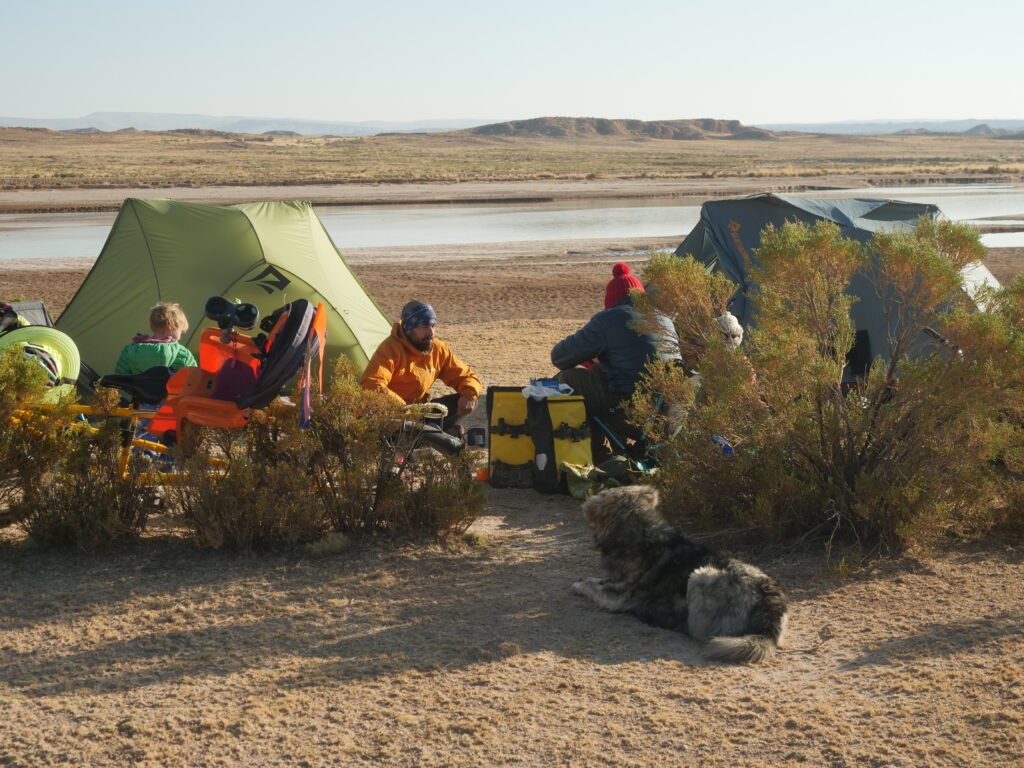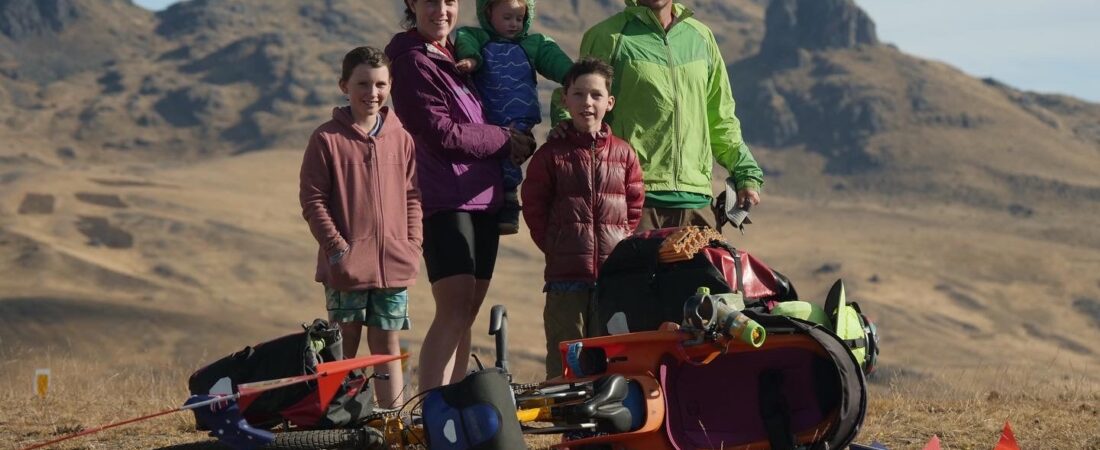Nicola Hughes (nee Pearce, Class of 2000) Swag Family World Ride
Posted on January 13, 2025
Former Friends’ teacher and alum Nicola Hughes (nee Pearce, 2000) has spent most of 2024 cycling through South America with her husband Andrew and their three children: Hope, 10, Wilfy, 8, and Jeannie, 2. The Hughes, who chronicle their multi-country adventure online as Swag Family World Ride, hope to be on the road for two years.
As told to Alison Boleyn.
Where are you now?
We’re in Uyuni, Bolivia, after taking two days to ride across the world’s largest salt lake, Salar de Uyuni. Camping in the middle of it was like being on another planet, especially at the point where you can’t see any landmarks around you. It’s a bright, white, crystal landscape that’s spectacular and intense. You need to wear sunglasses – otherwise, you could burn your eyeballs.
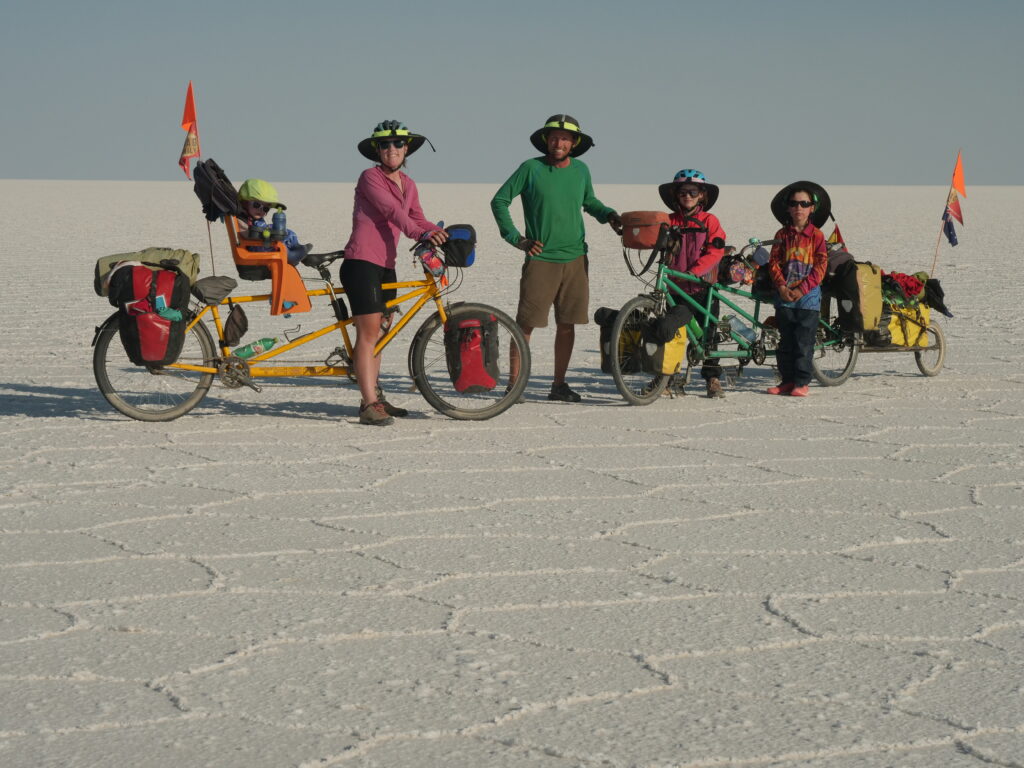
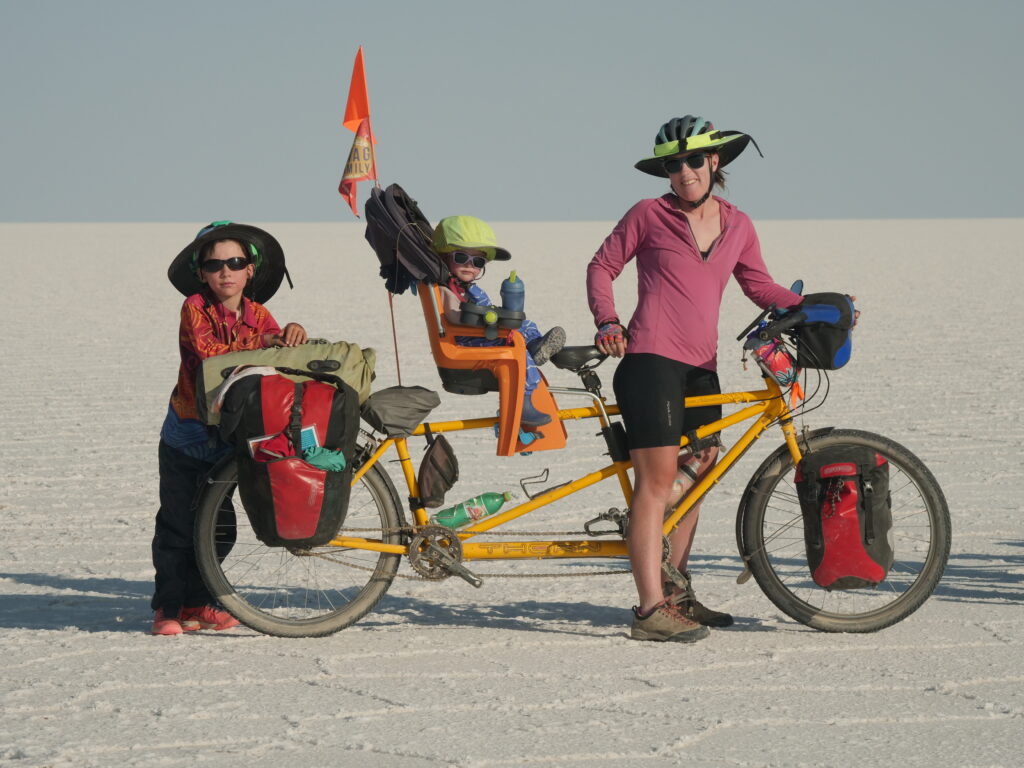
Where will you head next?
We’re about 10 days away from Villazón, where we’ll cross the border into Argentina, head to Bariloche and hopefully get visas for Chile. In March we fly to Europe. We’ll ride in the UK and maybe the Netherlands, Germany, the Czech Republic, Croatia, Greece and then on to India.
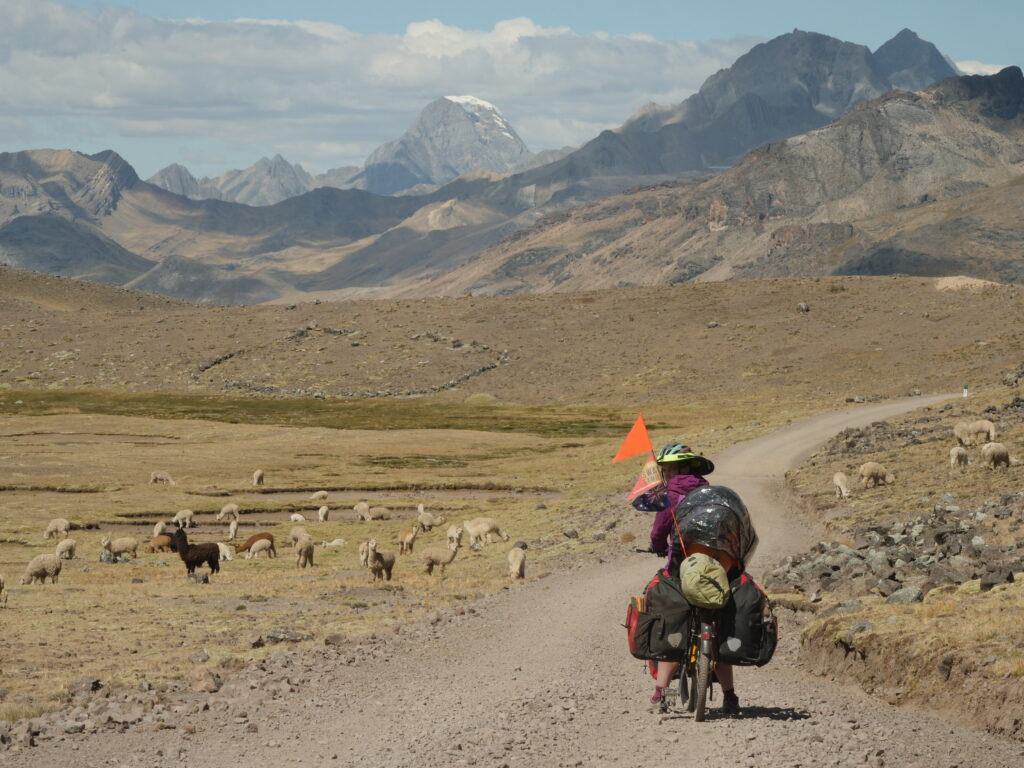
When did the trip start?
We set off in February 2024, from Woodbridge Primary School. In 2019, when Hope was 5 and Wilfy was 3, I took the year off from working as an outdoor ed teacher at Friends’ and the four of us rode around Australia. We had our third child Jeannie in 2022 and reached the point where we thought: she’s old enough – and we are ready as a family – to head on our next adventure.
What motivates you?
Our decision was around: what can we do as a family to define who our family is, and how do we create an environment we want the kids to grow up in? Being outside, living simply, exploring and understanding the world, pushing our limits, facing challenges, failing and succeeding and understanding what it is to be human regardless of circumstance – to learn about kindness and generosity firsthand – is an incredible gift we’ve been given throughout our adventure. It’s also an adventure learning project. For 15 years, my husband Andrew [Tasmania’s Australian of the Year in 2013] has been going on expeditions around Australia and Papua New Guinea and communicating his experiences to primary school classrooms and home schools. Kids engage with the maths, geography and science curriculum through that hook of adventure.
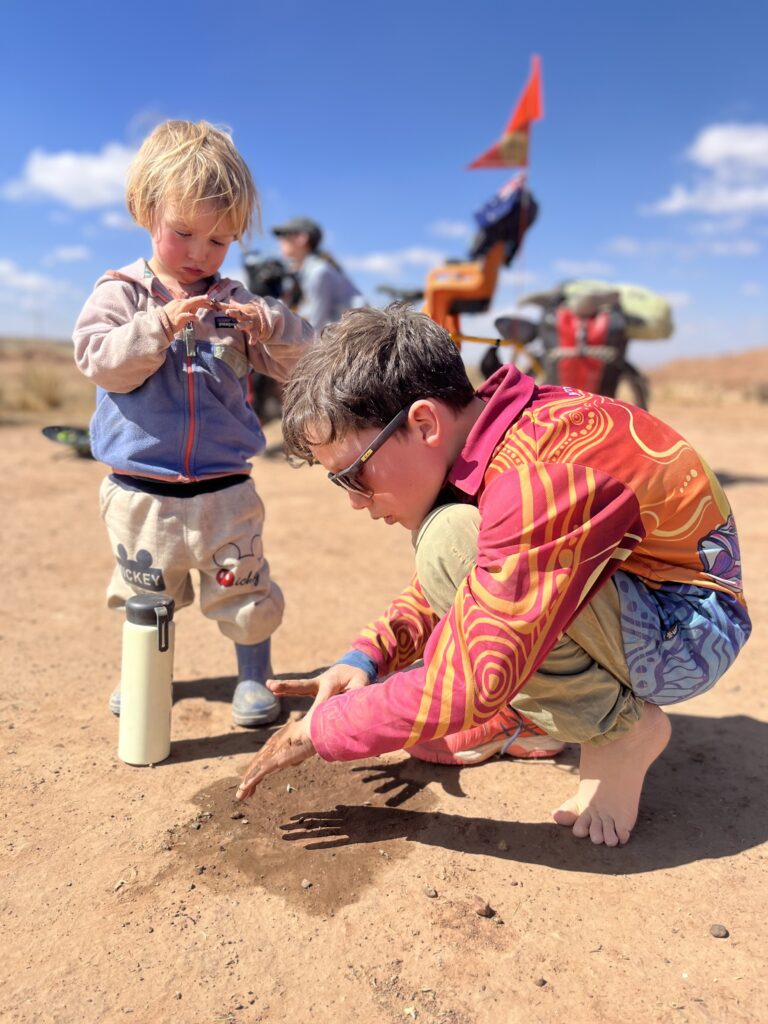
How did you prepare for this trip?
We didn’t train. We spent our first two weeks in Tasmania making sure everything was right. We checked the gear was ready, our setup correct, and that Jeannie was going to be happy on the bike – she sits on a reclining baby seat on the back of my bike, a tandem; when she’s older she can pedal using kiddie cranks [raised pedals]. We did hard gravel roads out the back of Huonville and said to ourselves: if we can get up those hills, we have a chance of making it up the Andes.
What’s been the hardest part of the trip?
Huonville’s back roads were tough because it was 30 degrees and we weren’t bike-fit. But the most challenging thing is sickness. Whether we all go down or just Jeannie, it forces us to stop and wait, and homesickness kicks in; Hope and Wilfy start missing their friends or school. But Andrew and I have always said that if anyone doesn’t want to be on the trip, we will stop. We pose the question to the kids from time to time and the answer, amazingly, is always: “No. We want to keep going.”
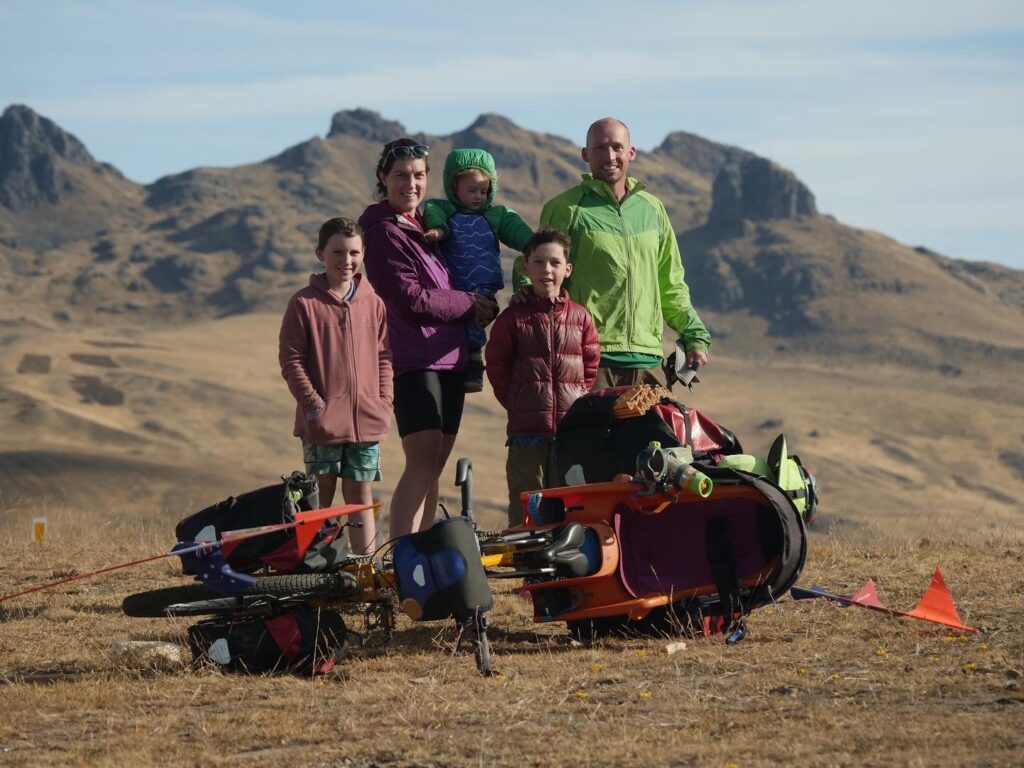
Why is that, do you think?
It’s the freedom of being on the bike. They don’t necessarily realise it but they are constantly learning about the world and in a hands-on way. Travelling by bicycle, you travel slowly, so you have the ability and opportunity to take in so much. You’re seeing things you wouldn’t see in a car. You’re tasting things. People will come up for conversations because you’re very approachable on a bike. And there’s lots of playtime. Most nights in Bolivia we’ve been camping in a tent so the kids go and explore while you cook around the campfire. One night, we were camped out in the sand dunes on the way to the Bolivian border, and they were climbing Mount Everest and creating their own little houses in the dunes.
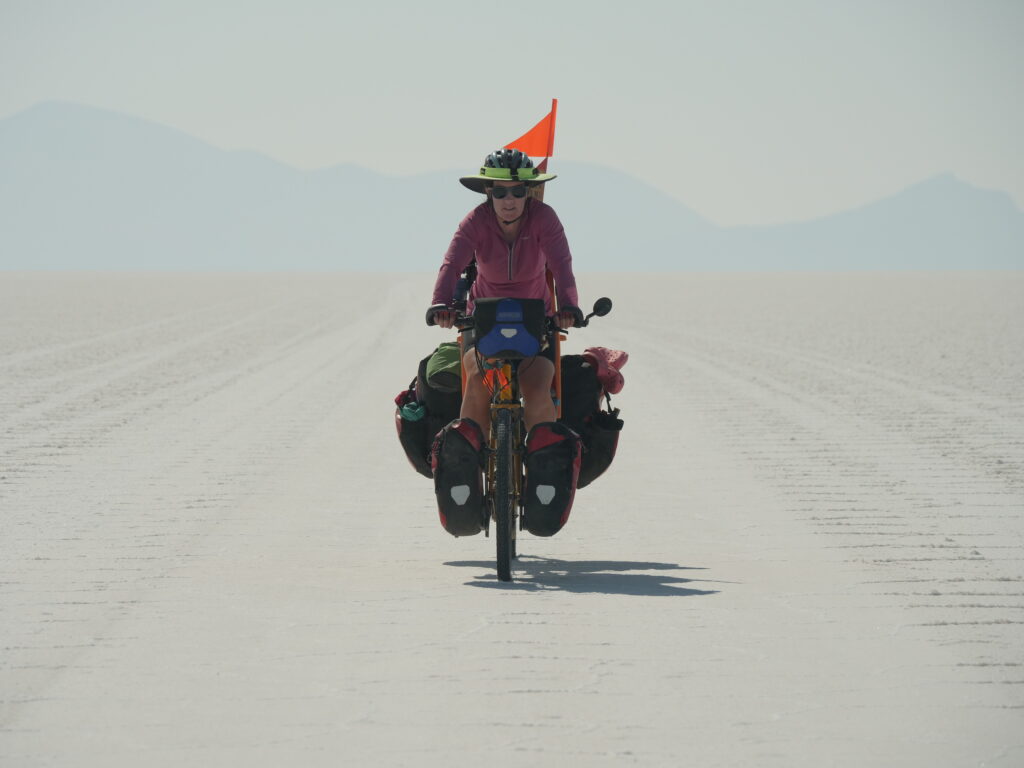
What else have you seen?
Bolivia has intrigued us. We travelled on a remote road that most cyclists wouldn’t take, under the foothills of Nevado Sajama, which is a giant, snowcapped volcano. We camped with that as our backdrop for three days, and saw rivers with flamingos and herds of vicunas. The highway is probably an easier road to take, but the harder road pays off in droves. There are incredible landscapes but also you rock up to these tiny little villages and people greet you with open arms and understand you don’t have much Spanish. They’ll play Charades with you.
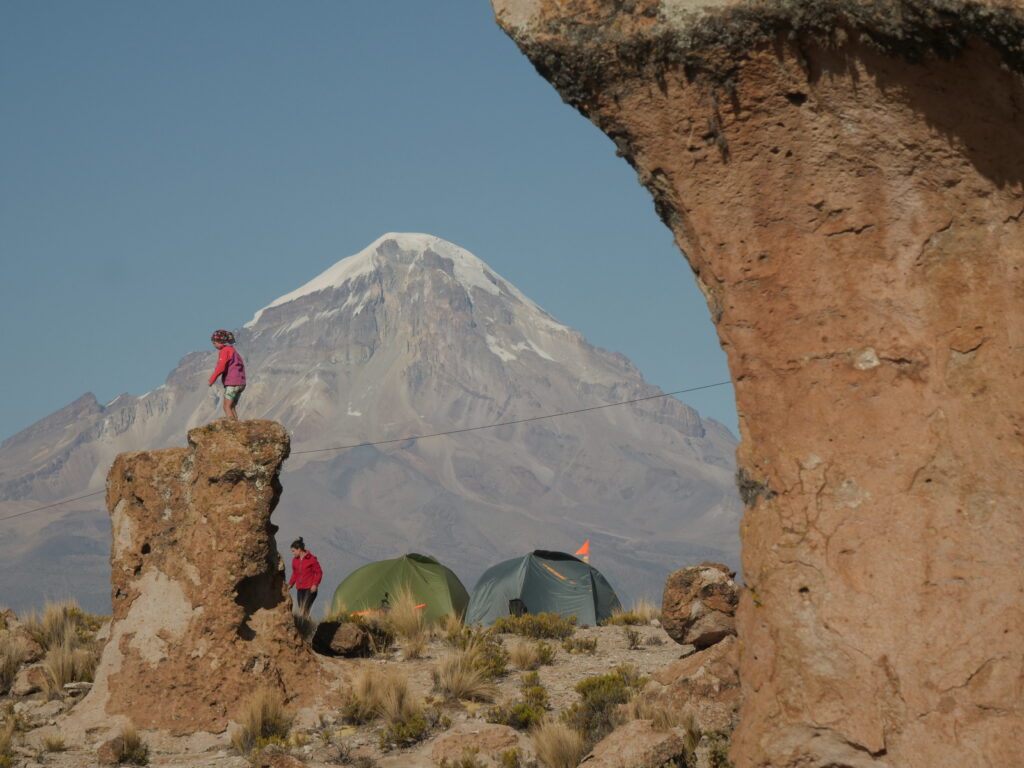
Do you aim to cover a certain distance a day?
It’s all dictated by the rhythm of our youngest. We’ve been travelling at around 3800 metres above sea level for the last two months and it’s incredibly cold – the nights are mostly zero or below – so we don’t usually get out of the tent until the sun has risen. It might take us until 10 or 11am to have breakfast, pack up, get the gear on the bikes and have a bit of a play or schoolwork. Then there’ll be a point when we usually stop and have lunch but if Jeannie falls asleep, we keep going until she wakes up. We might ride for a total of four or five hours. Most backpackers would cover about 10 kilometres a day; our average is 30 kilometers.
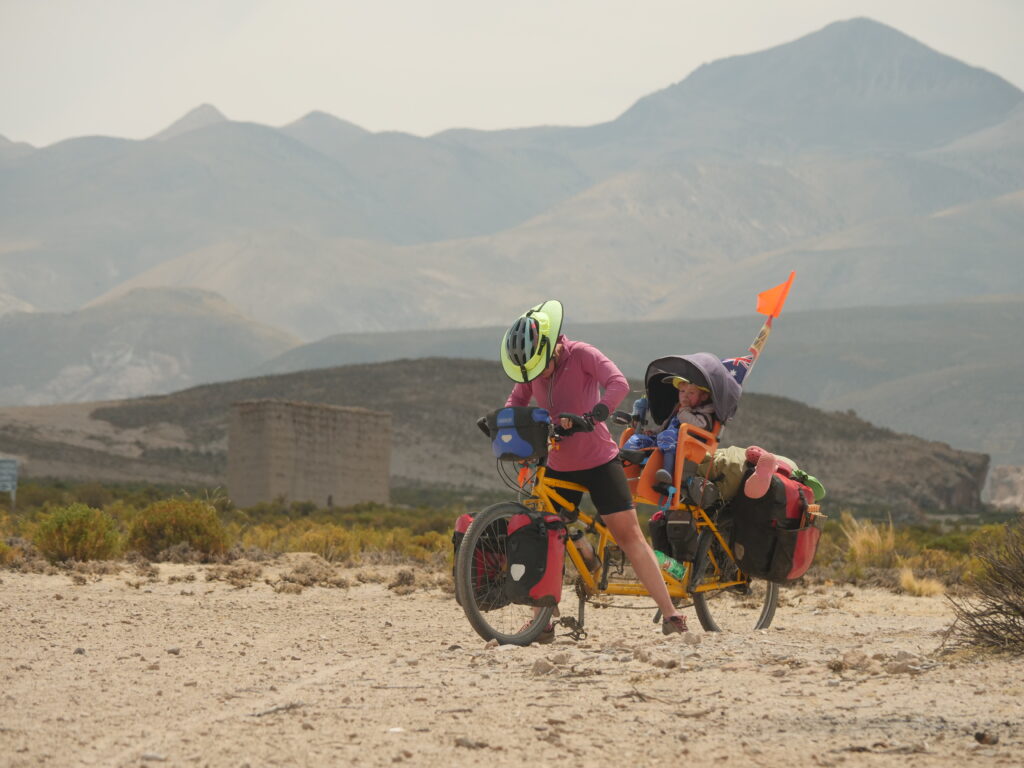
Have there been times when you’ve felt scared?
Our first stop after New Zealand was Lima. I remember our anxiety around stepping out the front door of the Airbnb. Andrew and I had never been to South America, and we’d heard a lot about packs of street dogs and robbery. Could we get past the language barrier? Were we capable of taking our children up the Andes? It took us three weeks in Peru to come out of what was culture shock I suppose, and acknowledging that if you want to cope with a new and different environment you’ve got to step into that environment. Putting on a brave face as a parent was worth it, because we had an incredible time in South America. The people were lovely. And the dogs – we learned to deal with them.
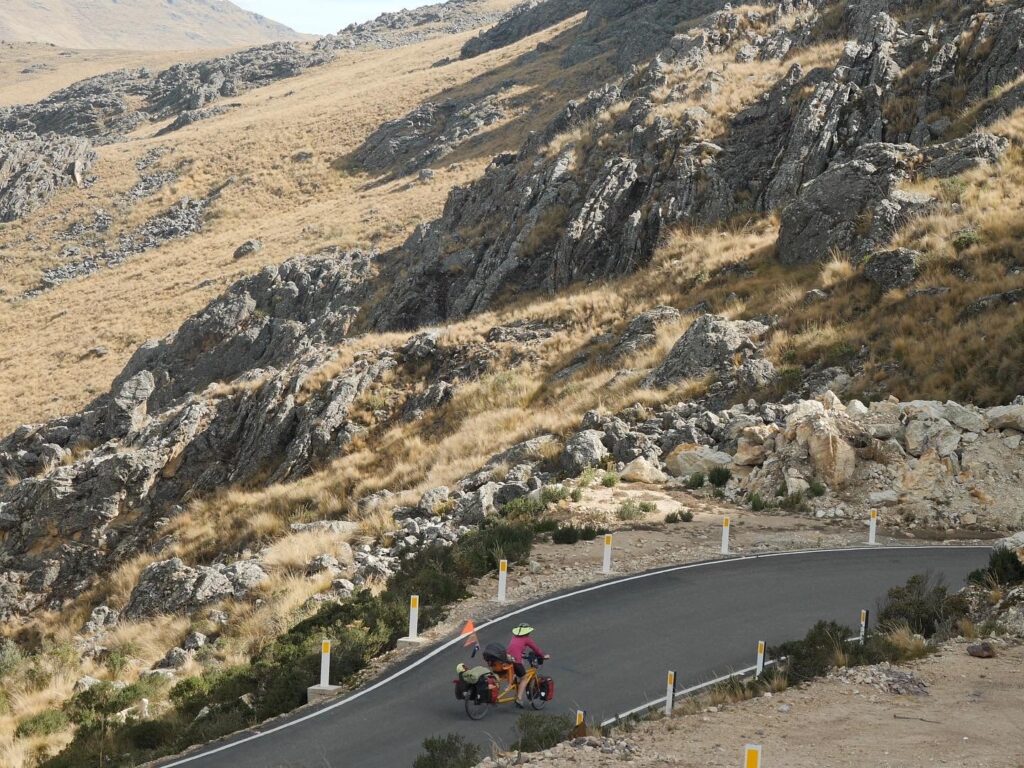
Is there a set date to return to Tasmania?
We’re coming back in two years. Originally the plan was three. It’s money dependent. The wonderful thing about an adventure is not having a set route or time frame, being open to where the journey takes you. We will come back broke, but what we can give our children at this point in their lives, you can’t measure that. It’s invaluable.
Has the trip taught you anything about yourself?
I’d wondered how I would cope as a mother, how I’d help my youngest adapt to the situation and the food. Circumstances meant we set out a year earlier than we’d planned. But I’ve learned that we humans don’t give ourselves credit for how adaptable we are. We breastfeed on the bike. We rug up at night. My two-year-old’s adaptability – and my own – has surprised me.
